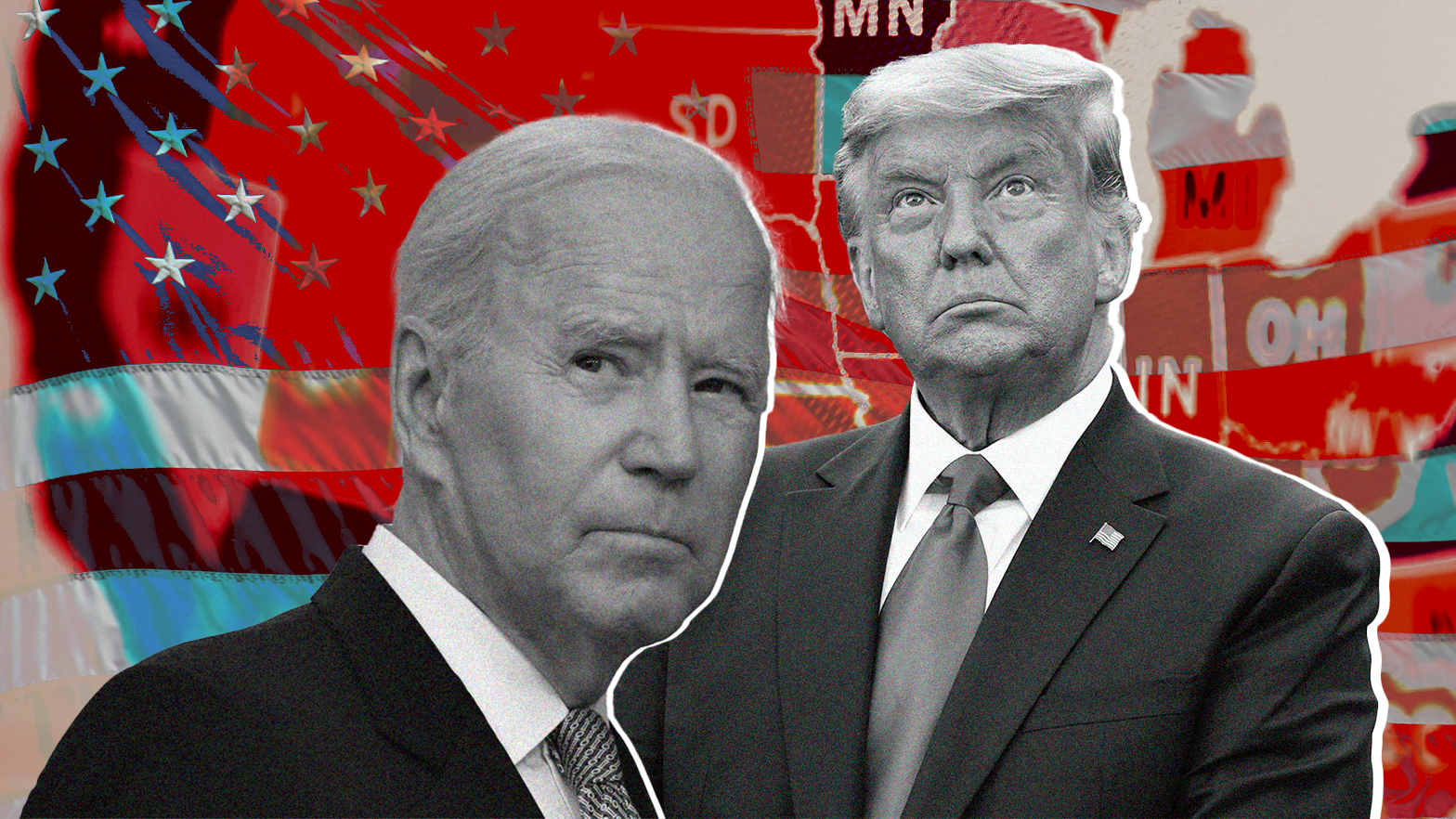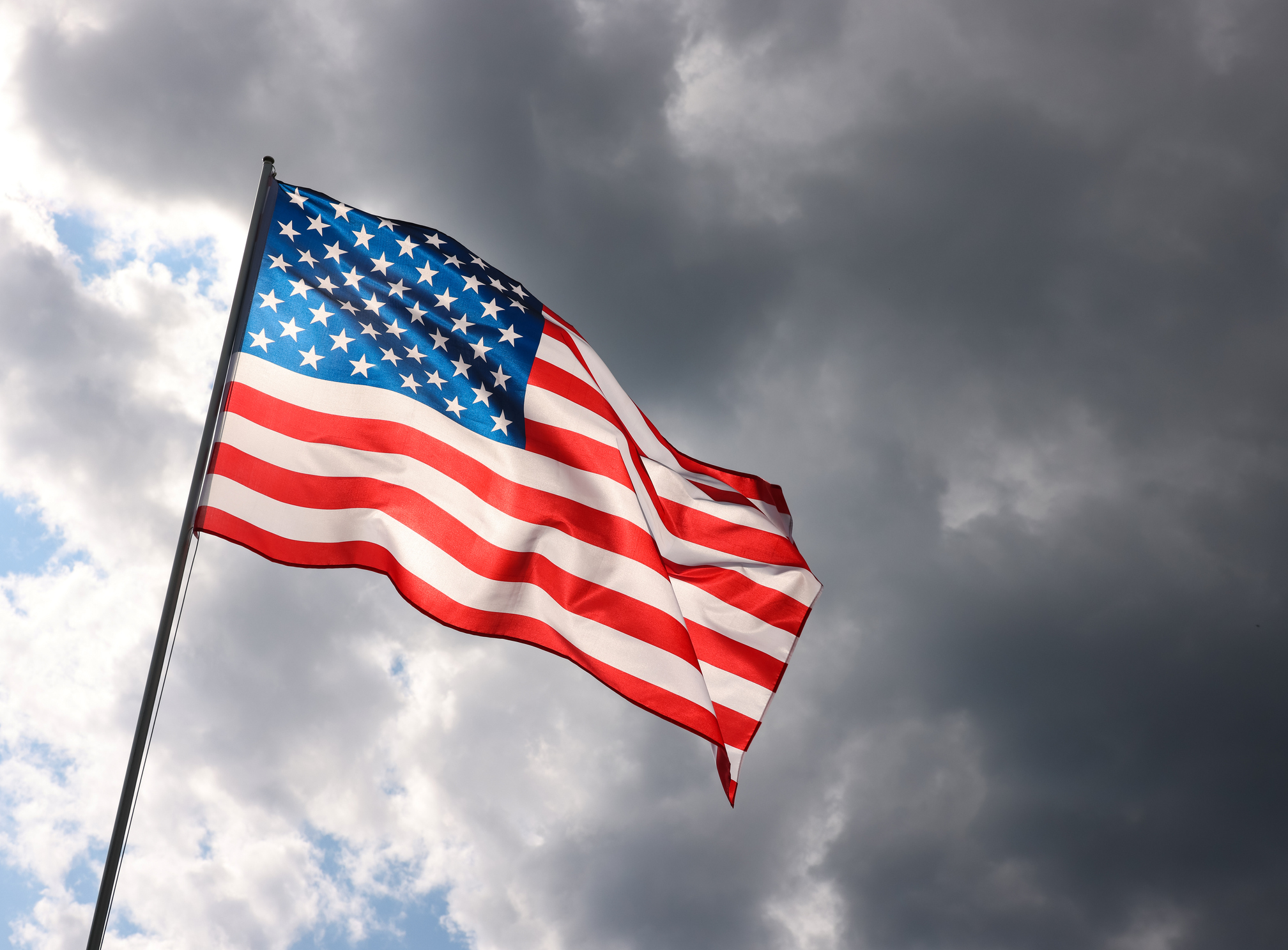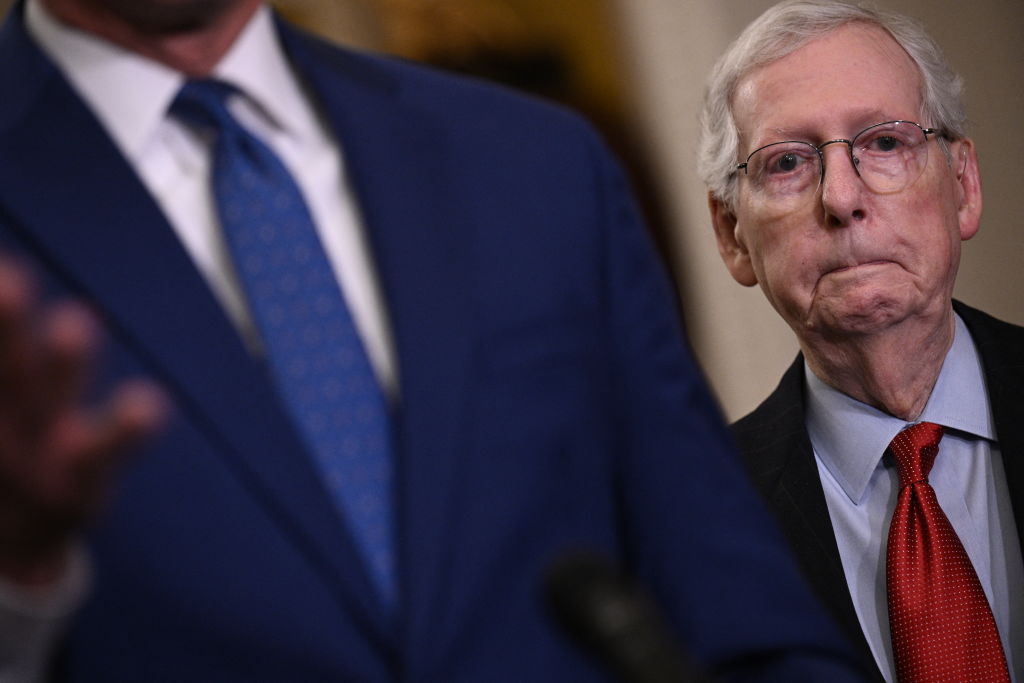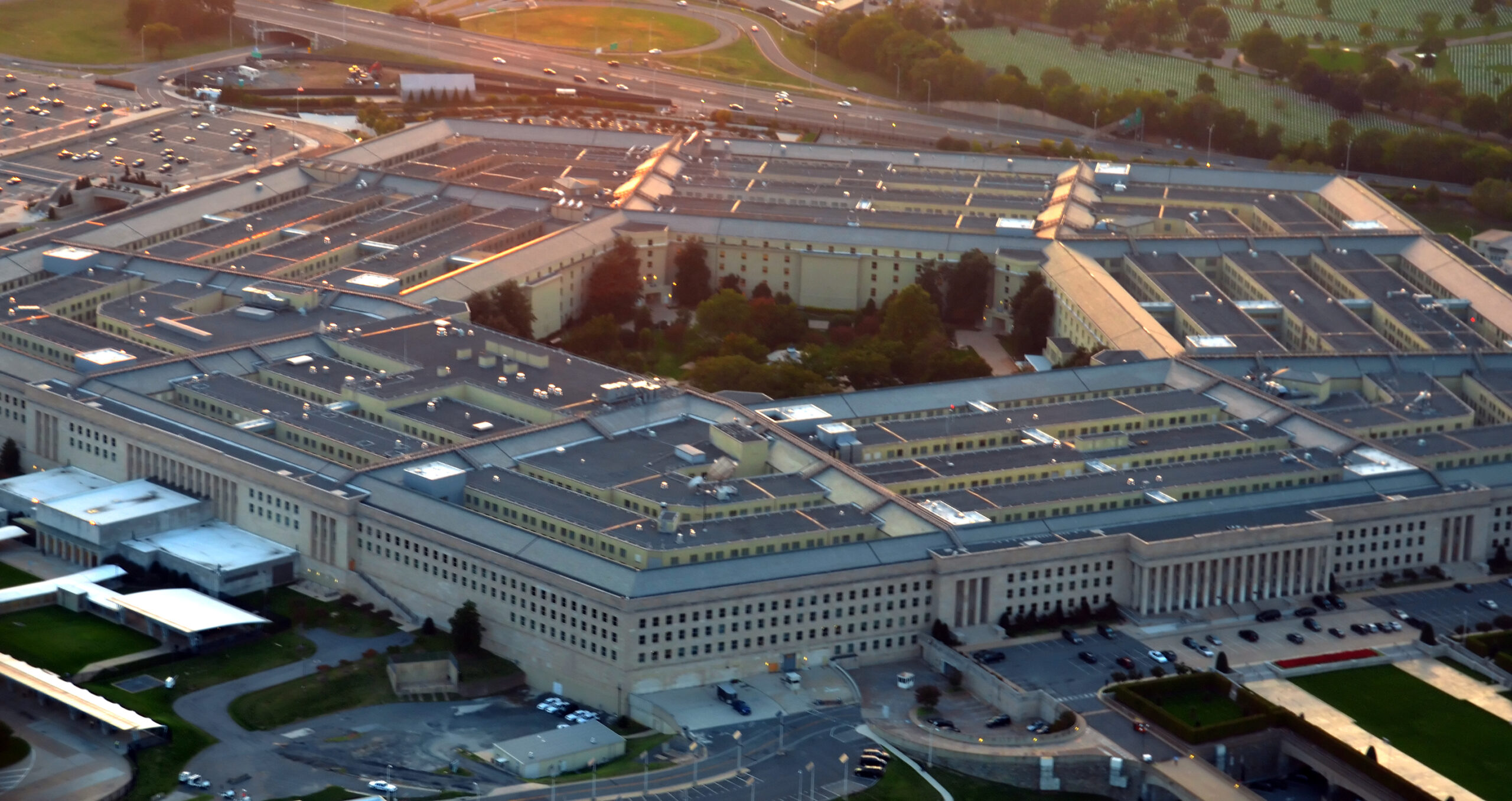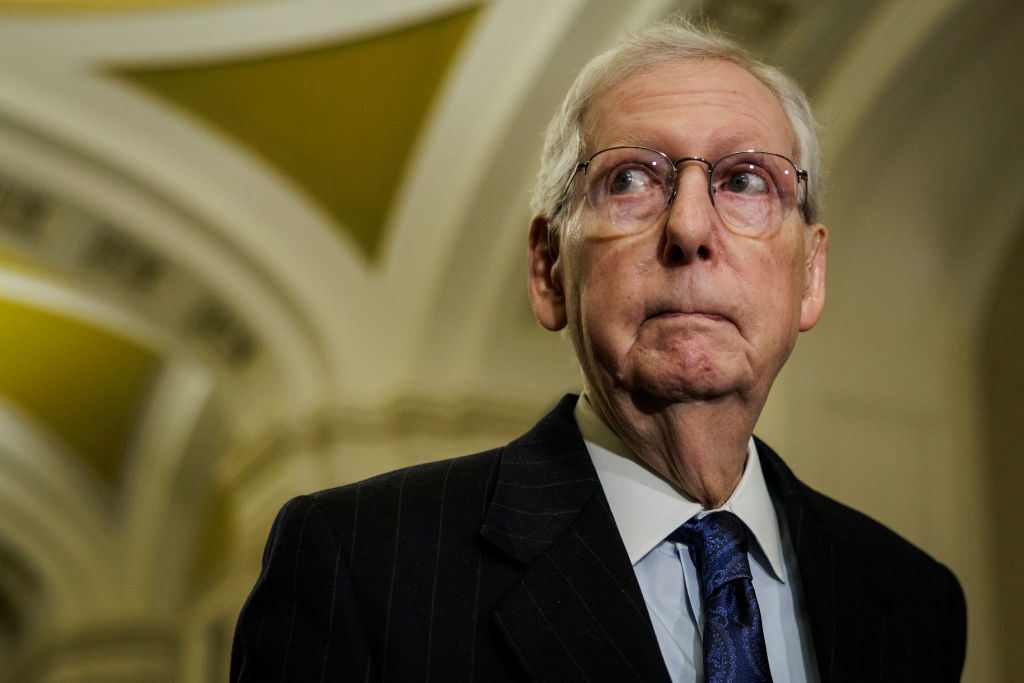For the future Left, demography will at last become destiny.
Show Trial, American Style
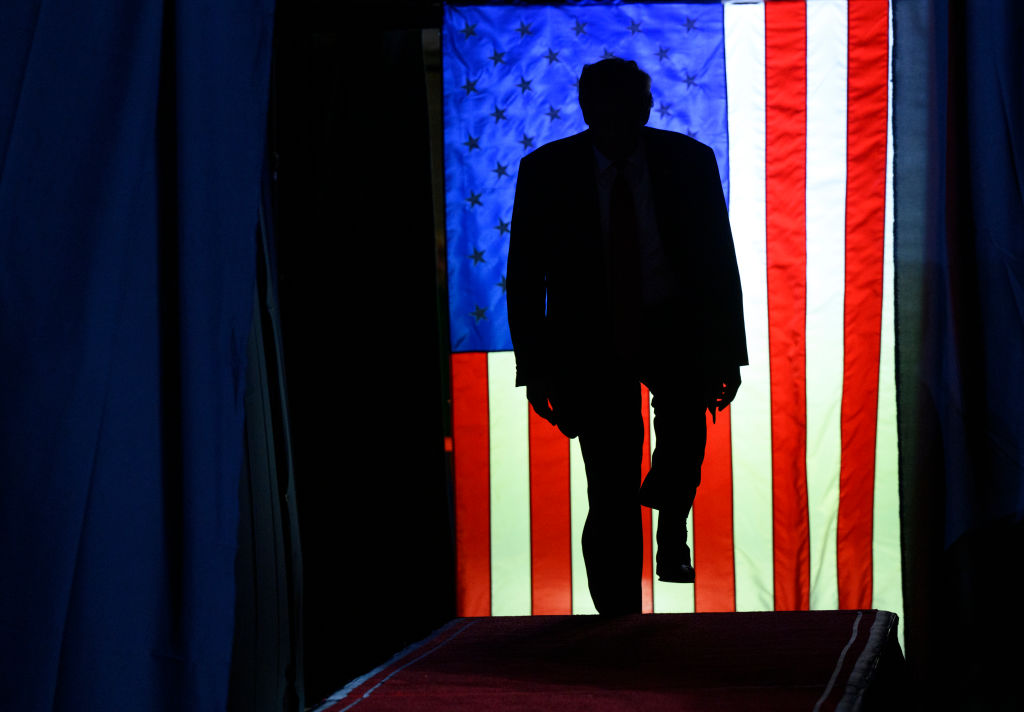
The indictments of Donald Trump represent a power play, not the interests of justice.
Special Counsel Jack Smith has indicted President Trump. Again. To spare you the pain of reading them, let me summarize the recent 45-page “election fraud” indictment and the June 44-page “documents” indictment: in June, Smith indicted Trump for stealing the government’s office paper. In August, he indicted Trump for claiming the 2020 election was fraudulent.
Lavrentiy Beria, Stalin’s head of the Soviet secret police, once remarked, “Show me the man, and I’ll show you the crime.” From personally torturing political dissidents to overseeing the massacre of more than 15,000 Polish officers in the infamous Katyn Forest, Beria wrought horrors upon Stalin’s enemies—real and perceived. He kept it up for more than 20 years until, in a predictable irony, fate caught up with him and he was “tried” in 1953. He was shot in the head two days before Christmas. At his “trial,” Beria was not afforded the protections of due process. His was a “show trial.” There are echoes of Beria in Jack Smith; while Trump may be afforded due process, we already know the prosecution is substantively illegitimate. With these recent indictments, Americans are going to have their first national experience of a “show trial.”
At common law, a crime was an intentional act that ordinary people understood to be substantively wrong in itself—murder, rape, robbery, arson, burglary, and mayhem, etc. By the time we abandoned the federal common law in 1938, Congress was comfortable empowering the administrative state to enforce regulations with criminal penalties. The ensuing 80 years are a testament to Congress’ insatiable appetite for criminalizing things it didn’t like. Today, all sorts of inane activities are “crimes”—a bastardization of the moral nature of law well documented nearly 15 years ago by Harvey Silverglate and Alan Dershowitz in Three Felonies a Day: How the Feds Target the Innocent.
At the federal level (and in many states), evidence supporting an allegation must be presented to a grand jury. The grand jury then votes whether to return an indictment. Unanimity is not required, only a majority. The standard of proof is “a preponderance of the evidence,” which is legalese for “probably.” This means that a criminal indictment may stand on thin ice: 51 percent of the jurors vote that a defendant probably did the arguably bad thing.
After the “crimes” are charged, the trial is supposed to do some substantive work. The object of a legitimate trial is to ferret out the truth through a courtroom dance mediated by the rules of evidence and criminal procedure and tempered by the inherent conservatism of the jury. Its purpose is to protect our form of government on the supposition that the form of government protects our way of life. If the object of a trial is perverted, an injustice may result. If its purpose is perverted, our way of life is threatened. The object of Beria’s trial was not to ascertain the truth, and its purpose was not to sustain a rules-based order. Instead, because it was a show trial, its object was a public demonstration of raw political power. Its purpose was to imbue that raw political power with the patina of legal legitimacy—by coopting the majesty of the law’s processes while ignoring its substance. The same is true of the pending trials of Donald J. Trump.
The “Election Fraud” Case
The election fraud case has four counts. Count one alleges a conspiracy to defraud the United States by obstructing the “lawful federal government function,” which Smith defines as “the nation’s process of collecting, counting, and certifying the results of the presidential election.” The crux of the allegations is that Trump and the alleged co-conspirators lied to Congress, the Vice President, and various state officials to induce them to delay or alter the likely outcome of the election certification pending on January 6, 2021. The indictment is, in the parlance of our day, “problematic.” I’ll focus on two points relating to the first count. (The other three charges, which incorporate the allegations in the first count, will likely rise or fall with count one.)
First, the indictment presupposes that there was no election fraud. It then characterizes Trump’s contrary assertions from November 14, 2020 through January 20, 2021 as “false,” as though this were self-evident. This is weird. In a fraud trial, the prosecution typically follows a three-step process: prove the truth, prove the defendant knew the truth, prove the defendant lied about it. It’s common sense. How can you prove a lie if you haven’t established the truth? Here, however, Smith skips the first step. Instead of alleging there was no election fraud on November 3, Smith alleges that Trump knew beginning November 14 that election fraud claims were false but pressured Vice President Pence and others anyway. These are not the same thing.
And, the latter is not legally sufficient. As a matter of law, it’s not enough to prove that after November 14 some of the President’s advisors told him they disbelieved the election fraud claims; yet Smith’s indictment contains literally dozens of paragraphs to this effect. It won’t even be enough to prove Trump disbelieved them. As a legal matter, the prosecution has to prove they are false in fact. If this is confusing, consider that in the 45 pages of this election fraud indictment, there is no reference to fraud on election day. By all appearances, it seems Smith doesn’t intend to prove the November 3 election was legitimate. He simply declares it.
On page seven, Smith’s indictment repeats the well-trodden quote that the 2020 election was “the most secure in American history.” Smith’s aim is further suggested by the dates of the alleged conspiracy: from “on or about November 14, through on or about January 20, 2021.” That is, 11 days after the election. Expect this date range to appear in government motions to block discussion by the defense of election fraud prior to the alleged conspiracy—i.e., fraud on election day. Smith knows these motions will be decided by District Court Judge Tanya Chutkan, a sympathetic ear.
Filing and winning these motions is important to Smith’s case. After all, it’s apparent he’s not quite sure if the lie is that there was any fraud or only “outcome-determinative fraud.” At trial, Smith can gloss over this difficulty only by assuming the premise (there was no fraud) and preventing the defense from challenging it. He has apparently built in the “outcome determinative” language as a fallback position. In other words, if the court prevents Trump from demonstrating any fraud, Smith hopes the jury will assume there wasn’t any. A D.C. jury probably will. Alternatively, in the unlikely event the court allows Trump to show some fraud on election day, Smith will have to rebut it by arguing it wasn’t “outcome determinative.” In either case, this is an absurdity. If after almost three years, the nation can’t agree on this issue, then no legitimate jury could agree on it in a few days of deliberations. Of course, Smith knew this when he venued the case in Washington D.C., where the jury pool is eager for a show trial and already believes the 2020 election “was the most secure in American history.”
But there’s a larger reason why the election fraud case is a sham. From election day through January 20 (and even now), millions believed there was election fraud. This was a grievance held by American citizens, Donald Trump among them. They had the right to assemble and to petition their government to redress their grievances. The First Amendment doesn’t qualify this right by inquiring whether the grievances are sincerely held, or if the grievances are backstopped by evidence, or if the petitioners are being deceitful. It’s political speech. In this respect, the indictment’s extensively documented examples of Trump’s badgering and misrepresentations are irrelevant. He had a grievance, and his actions from November 14 through January 20 must fall within the First Amendment’s meaning of “petition the government.” If it doesn’t, then neither does shouting at your congressman about election fraud. Smith knew all of this. The indictment says as much: “[Trump] had a right, like every American, to speak publicly about the election and even to claim, falsely, that [it was fraudulent.]” That he indicted Trump anyway indicates this will be a show trial. Its purpose is not to find out if Trump lied or even if there was election fraud. Its purpose is to demonstrate publicly that questioning the regime narrative will not be protected by the First Amendment.
The “Documents” Case
The same is true of the documents case. What truth, exactly, is this trial supposed to discern regarding the two types of alleged offenses: retaining secret documents and lying about it (obstruction)? Is it that President Trump who on January 20, 2021 was entitled to know all the country’s secrets continued knowing them two days later as former president? No. Perhaps it’s that those secrets were written on sheets of paper? Not quite. After all, Trump could lawfully know the secrets on January 20, 2021, and he could lawfully write them down from memory on his own paper after the inauguration. This leaves one interpretation: the first set of charges against the former President amount to allegations that he stole the government’s office paper.
As for the obstruction charges, back in June former Attorney General Bill Barr made an astounding claim: “[a]t its core, this is an obstruction case. Trump would not have been indicted just for taking the documents in the first place…[nor]…even if he delayed returning them.” Let that sink in. He would not have been indicted just for…one thing or even for some other thing, but concealing those things. Well that was just too much. In other words, “it’s not the crime, it’s the coverup.”
Barr’s breathless contention that Trump only doomed himself by obstructing justice is plainly wrong. Smith’s second indictment of Donald Trump is proof to the contrary. His analysis is also backwards. Obstruction is not the culmination of an increasing litany of serious but “overlookable” charges; it’s the fallback charge of an uncertain prosecutor who lacks the humility to be deterred by uncertainty. In essence, Trump is being prosecuted for concealing the existence of documents. This may not seem problematic until one considers that he was originally being investigated for retaining those same documents precisely because the government knew he had them. They were never concealed.
Hell Is Full of Laws
The rule of law, embodied in the trial, is an instrument the purpose of which is to sustain our civilization. It might seem strange to say that the ultimate purpose of a trial is something other than to determine the guilt or innocence of a particular defendant. After all, if a trial doesn’t serve some larger social purpose, actual guilt or innocence is irrelevant. In this way, the show trial perverts the entire process by making victory in a political power struggle its object and subversion of our way of life its purpose.
The curious thing is that the show trial does all of this while hewing to recognizable procedures. As a law student nearly 20 years ago, I enrolled in a natural law seminar. The professor, an artefact of a more serious time, once observed, “Hell is full of laws, and due process is strictly observed.” This is the essence of the show trial. It uses due process as a subterfuge. And it is this subterfuge that has confounded so many people of common decency: from ordinary Americans to high-ranking former officials like former Attorney General Barr.
As Beria understood, legal process can be marshaled to gussy up a rotten thing. Form can triumph over substance. That the great reputation of the law can be subverted by its lesser surrogates (statutes and process), and opportunistic powerbrokers can gain by the subversion, is the sine qua non of a show trial. Smith and the ruling regime hope to convince Americans that the indictment and pending trials of the former President of the United States are legitimate by heralding their processes in a way that obscures their rotten substance. If you have spent any time wondering whether Trump is “guilty,” then the psyop has succeeded on you.
The object of the pending trials of Donald Trump is not to determine if he really believed his election fraud claims, or if he stole office paper, or if he lied about it. Their object is to demonstrate to 80,000,000 Americans that dissent will not be tolerated: that they should reconsider the next time they decide to assemble and complain. These trials will not sustain our form of government but replace it and, with it, our cherished way of life.
The American Mind presents a range of perspectives. Views are writers’ own and do not necessarily represent those of The Claremont Institute.
The American Mind is a publication of the Claremont Institute, a non-profit 501(c)(3) organization, dedicated to restoring the principles of the American Founding to their rightful, preeminent authority in our national life. Interested in supporting our work? Gifts to the Claremont Institute are tax-deductible.
Pocketbook concerns override racial resentment in the current political climate.
On civil war in America and other unpleasant possibilities.
Republican voters’ trust in their own elected leaders is plummeting.
Restoring pride in the military will require a massive effort.
To save American immigration policy, Trump must call for the Senate leader’s removal.


